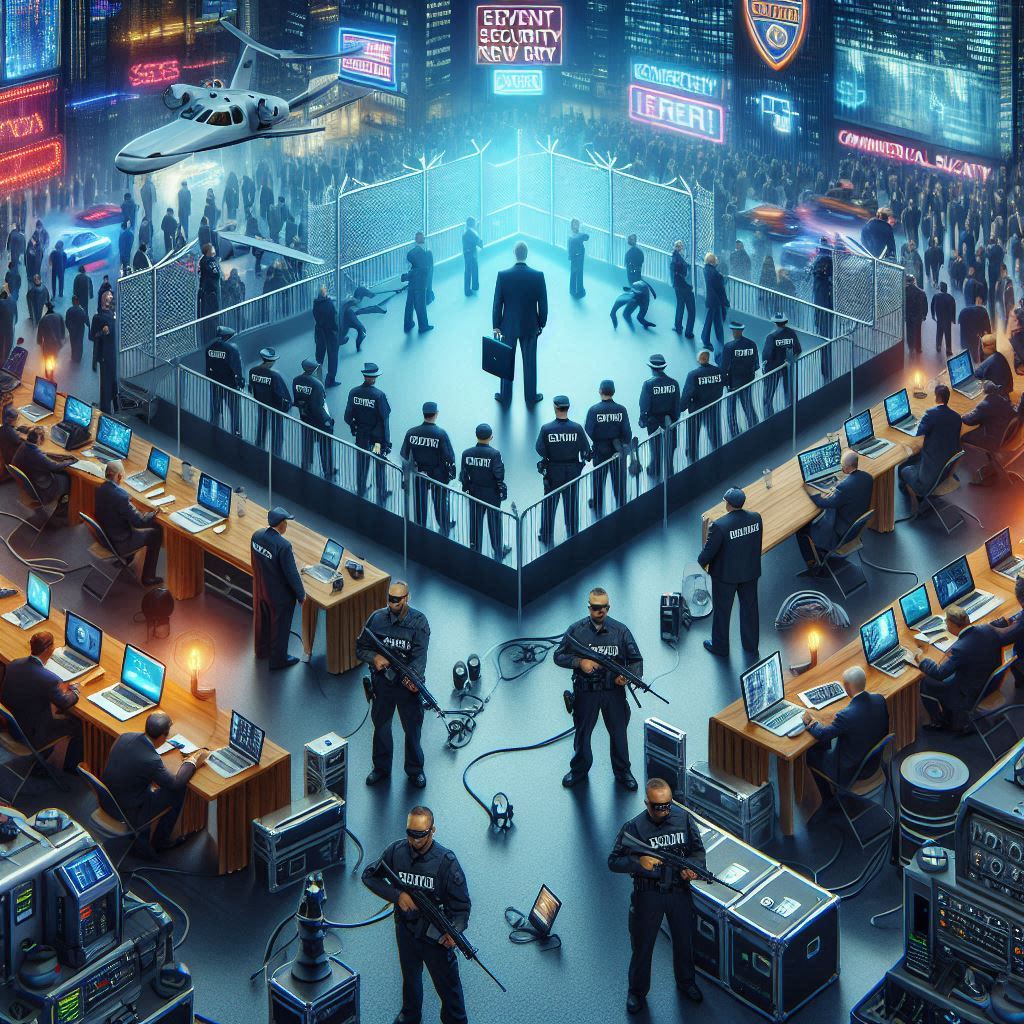
Loading...

Loading...

Security is a paramount concern in bustling New York City, whether for dynamic events or for the everyday operations of commercial establishments. While both event security and commercial security aim to protect people and property, their focus, strategies, and execution differ significantly. This blog explores the key differences and benefits of event security versus commercial security in New York.
Event Security: Event security is tailored for temporary gatherings, such as concerts, festivals, corporate events, and private parties. The primary goal is to ensure the safety of attendees, manage large crowds, and prevent disruptions during the event.
Commercial Security: Commercial security is designed for ongoing protection of businesses, including offices, retail stores, warehouses, and industrial facilities. Its focus is on safeguarding assets, preventing theft, and ensuring the safety of employees and customers over the long term.
Event Security: The security plan for an event is typically short-term and highly specific to the event's location, duration, and nature. Security measures are intensified during the event and are dismantled afterward.
Commercial Security: Commercial security requires continuous and sustained efforts. It involves long-term planning, regular updates to security protocols, and ongoing monitoring to adapt to changing threats and business needs.
Event Security: Security measures for events include crowd control, access control, surveillance, and emergency response. Event security personnel are trained to handle large groups of people, coordinate with event organizers, and respond swiftly to incidents.
Commercial Security: Commercial security encompasses a broader range of tactics, such as installing surveillance cameras, employing security guards, implementing access control systems, and conducting regular security audits. It also involves safeguarding sensitive information and ensuring compliance with industry regulations.
Event Security: Event security personnel are often trained for specific tasks like crowd management, VIP protection, and emergency response. They need to be adaptable and capable of working in high-pressure, fast-paced environments.
Commercial Security: Commercial security guards are generally more focused on regular patrolling, monitoring, and securing the premises. They are often more familiar with the daily operations of the business and can identify potential security risks unique to the establishment.
Enhanced Safety for Attendees: Event security ensures that all attendees feel safe and secure, which enhances their overall experience and enjoyment of the event.
Effective Crowd Management: Properly managed crowds reduce the risk of accidents, injuries, and chaos, making the event safer for everyone.
Emergency Preparedness: Event security teams are trained to handle emergencies, such as medical incidents, fires, or security breaches, ensuring a quick and effective response.
Protection of Assets: Event security protects valuable assets, including equipment, merchandise, and personal belongings, from theft or damage.
Continuous Protection: Commercial security provides round-the-clock protection, ensuring the safety of employees, customers, and assets at all times.
Theft Prevention: By implementing robust security measures, businesses can significantly reduce the risk of theft and vandalism, saving money and resources.
Employee and Customer Safety: A secure environment boosts employee morale and enhances the customer experience, fostering trust and loyalty.
Regulatory Compliance: Commercial security helps businesses comply with industry regulations and standards, avoiding legal issues and potential fines.
Risk Management: Ongoing security efforts enable businesses to identify and mitigate potential risks, ensuring a safe and secure working environment.
While both event security and commercial security are essential in New York City, their approaches and benefits cater to different needs. Event security focuses on the safety and success of temporary gatherings, providing specialized measures to handle large crowds and emergencies. In contrast, commercial security offers continuous protection for businesses, safeguarding assets, employees, and customers. Understanding these differences helps organizations choose the right security solutions to meet their specific requirements and ensure safety and success in the city that never sleeps.
(0) Comments on this post
Leave a comment